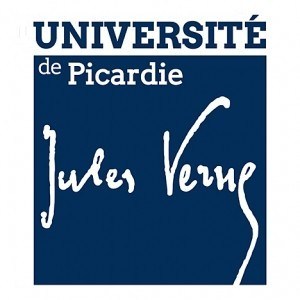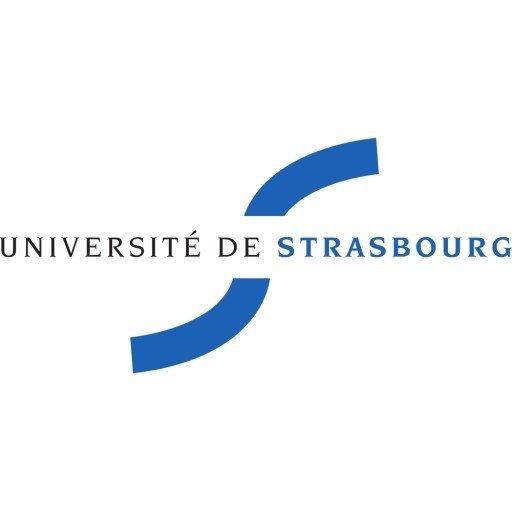Photos of university
Materials for Energy Storage and Conversion at the University of Picardy Jules Verne is an advanced interdisciplinary program dedicated to the study and development of innovative materials essential for energy storage and conversion technologies. This program aims to equip students with a comprehensive understanding of the fundamental scientific principles underlying the behavior of materials used in batteries, supercapacitors, fuel cells, and other energy devices. Emphasizing both theoretical knowledge and practical skills, the curriculum covers areas such as materials synthesis, characterization techniques, electrochemical methods, and the integration of materials into functional energy systems. Students will explore cutting-edge topics including nanostructured materials, advanced ceramics, polymer-based materials, and composites designed to improve energy efficiency and sustainability. The program also focuses on the environmental impacts and the lifecycle analysis of energy materials, preparing graduates to contribute to the development of cleaner, more efficient energy solutions. Throughout the course, students engage in laboratory work, research projects, and collaborations with industry partners to gain hands-on experience and understand real-world applications. Graduates of this program are prepared for careers in research and development, material engineering, and innovation within industries focused on renewable energy, electric vehicles, and sustainable technologies. By integrating science, engineering, and environmental concerns, the program aims to foster the next generation of specialists capable of driving progress in energy storage and conversion through innovative material solutions.
The Materials for Energy Storage and Conversion program at the University of Picardy Jules Verne offers students a comprehensive education in the development and application of advanced materials essential for energy-related technologies. This interdisciplinary program combines principles of materials science, chemistry, physics, and engineering to prepare graduates for innovative work in sustainable energy solutions. Throughout the program, students explore the properties and behaviors of various materials, including nanomaterials, polymers, ceramics, and composites, focusing on their roles in improving energy storage systems such as batteries and supercapacitors, as well as energy conversion devices like fuel cells and solar cells.
The curriculum includes rigorous coursework in thermodynamics, electrochemistry, materials characterization techniques, and environmental considerations of energy materials. Students gain practical laboratory experience, engaging with state-of-the-art equipment and methodologies to design, synthesize, and analyze novel materials. Special emphasis is placed on the development of high-performance materials that are efficient, durable, and environmentally friendly, aligning with global efforts toward sustainable energy production and consumption.
In addition to technical skills, students develop competencies in project management, data analysis, and scientific communication through various projects, seminars, and research activities. The program fosters collaboration with industry partners and research laboratories, providing valuable internship opportunities that enhance practical understanding and professional networking. Graduates of the program are well-equipped to pursue careers in research and development, materials engineering, or management roles within industries focused on renewable energy, electronics, and high-tech manufacturing sectors. By integrating theoretical knowledge with practical application, the Materials for Energy Storage and Conversion program aims to contribute to technological advancements that support a cleaner and more sustainable energy future.
Program requirements for Materials for Energy Storage and Conversion at the University of Picardy Jules Verne typically include a strong background in fundamental sciences and certain specific skills. Applicants are generally expected to hold a Bachelor's degree or equivalent in fields such as Physics, Chemistry, Materials Science, or Engineering. A solid understanding of basic chemistry and physics principles is essential, including knowledge of thermodynamics, electrochemistry, and material properties. Proficiency in laboratory techniques and familiarity with characterization tools, such as spectroscopy or microscopy, are highly advantageous. Additionally, candidates should demonstrate analytical skills and the ability to perform independent research.
English language proficiency is required, often verified through standardized tests like TOEFL or IELTS, particularly for international students. The program seeks candidates with a motivation to develop new materials and technologies for energy storage solutions like batteries, supercapacitors, and fuel cells. While prior research experience is not strictly mandatory, it is considered a plus. Applicants should submit a resume, academic transcripts, a motivation letter outlining their interest in the program and future goals, and references from previous instructors or employers.
Some prerequisites may include prior coursework in inorganic or organic chemistry, materials characterization, and electrochemical methods. Basic programming or data analysis skills may also be beneficial. It is recommended that applicants demonstrate an understanding of contemporary challenges in energy storage and their potential solutions. International applicants might need to provide proof of financial resources and health insurance coverage. Overall, the program seeks motivated individuals with a strong foundation in science and engineering who are committed to advancing sustainable energy technologies.
The financing studies for the Materials for Energy Storage and Conversion program at the University of Picardy Jules Verne are designed to provide students with comprehensive information about the various funding options available throughout their educational journey. This program emphasizes the importance of understanding the financial aspects associated with higher education to ensure students can plan effectively and minimize financial burdens. Students are encouraged to explore multiple sources of funding, including government grants, scholarships, student loans, and personal savings. The university actively supports students in identifying and applying for relevant scholarships, whether they are merit-based, need-based, or targeted towards international students. Additionally, the program provides guidance on applying for national and European Union funding programs dedicated to scientific research and innovation. It is also advisable for students to consider part-time work opportunities within or outside the university to support their finances during their studies. The program's curriculum sometimes includes modules on financial literacy and management, enabling students to better handle their financial resources effectively. International students are often eligible for specific scholarships or assistance programs, which facilitate their integration into the academic community. The university also collaborates with industry partners and research institutions that may offer internships or sponsored research opportunities which can sometimes include stipends or financial compensation. Overall, the university aims to make education accessible through transparent and diverse funding options, which are crucial for enabling students to focus on their academic and research pursuits without undue financial stress. Students are advised to contact the university’s financial aid office early in their application process to receive tailored advice and assistance in securing funding. The financial planning component of the program underscores the university’s commitment to supporting students holistically and ensuring that financial considerations do not impede their career aspirations in the field of energy storage and conversion materials.
The Master’s degree program in Materials for Energy Storage and Conversion at the University of Picardy Jules Verne is designed to provide students with a comprehensive understanding of advanced materials and technologies used in the field of energy storage and conversion. This program is tailored to meet the growing needs of the energy sector by developing expertise in innovative materials such as nanomaterials, composites, and functional materials that are crucial for the development of batteries, supercapacitors, fuel cells, and other energy storage systems.
The curriculum typically covers fundamental concepts in materials science, electrochemistry, and thermodynamics, as well as specialized courses focusing on the design, synthesis, characterization, and application of energy-related materials. Students engage in practical laboratory work and research projects that allow them to apply theoretical knowledge to real-world problems, fostering skills in experimental techniques, data analysis, and scientific communication.
The program aims to prepare graduates for careers in research and development, industry, or academia, focusing on the creation of more efficient, durable, and environmentally friendly energy storage devices. Collaboration with industrial partners and research institutes is often a component of the program, providing students with valuable industry insights and opportunities for internships.
Graduates of this master’s program may pursue careers in sectors such as renewable energy, automotive industries, electronics, and materials manufacturing, where expertise in energy materials is increasingly in demand. The program also encourages international mobility, enabling students to participate in exchange programs and collaborative research projects across Europe and beyond.
The University of Picardy Jules Verne boasts modern research facilities, well-equipped laboratories, and a dynamic academic environment supported by faculty members who are recognized experts in the field of energy materials. Students benefit from a curriculum that combines theoretical learning with practical application, fostering skills that are directly applicable to the evolving demands of the energy storage industry. Overall, this master’s program positions students at the forefront of innovation in materials science with a focus on sustainable energy solutions, contributing to global efforts in reducing carbon emissions and transitioning towards cleaner energy sources.








